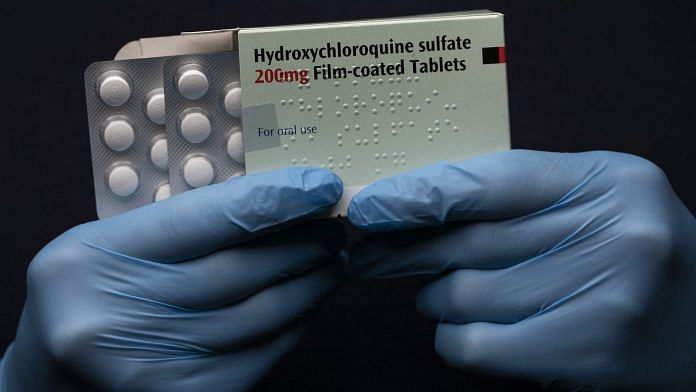Follow the science” — these are reassuring words in a pandemic like Covid-19, when widespread fear of a deadly virus can be exploited by unscrupulous politicians, snake-oil salesmen and cranks. Public trust in scientists has risen recently.
But we may be hitting the limits of this trust, just as many countries enter the crucial phase of reopening their economies with a raft of new social-distancing measures meant to ward off a second wave of infections. We’ve seen several confusing U-turns and unresolved debates on issues such as the effectiveness of cloth masks or the risks of reopening schools. Faith in authority is ebbing globally, even in high-trust countries like Sweden, where a famously hands-off approach to lockdown is spreading ripples of doubt. And now the messy rush to find a treatment that works — even if it means throwing long-standing scientific standards out of the window — is veering from farce to tragedy.
Last week, highly respected and peer-reviewed journal The Lancet retracted a bombshell study that suggested hydroxychloroquine, a contested potential treatment for Covid-19, was linked to an increased risk of death and heart ailments. The sheer scale of the retrospective analysis, drawn from more than 96,000 patients in 671 hospitals, had been enough to convince institutions running several global trials of the drug (including the World Health Organization) to slam on the brakes. Only afterward did odd inconsistencies in the data, such as an inflated number of victims in Australia, lead to questions about how exactly its provider, Surgisphere Corp., had compiled it. A lack of convincing answers — flagged by the paper’s own co-authors — led to the retraction. Other studies in other journals have subsequently been retracted.
Also read: How we’ve lost time in the race for a Covid-19 cure
This kind of embarrassment is nothing new, even for The Lancet, which in 2010 retracted a paper linking autism to vaccines — 12 years after it was first published. We should be thankful this case was dealt with quickly.
But the damage can’t be undone. Yet more precious time studying potential treatments for Covid-19 has been lost, and the retraction played into the hands of conspiracy theorists who promote the unsubstantiated idea that special interests want hydroxychloroquine, a generic drug, out of the running. (The drug’s top supporter, French scientist Didier Raoult, used the hashtag “#LancetGate” on social media.) Surgisphere has defended its approach to consolidating medical records using artificial intelligence and machine learning, according to Bloomberg News, and says it’s not responsible for the source data.
This is a wake-up call for how the public, the media and the scientific community evaluate research, even the gold standard of peer-reviewed papers. In theory, it should be hard to game the system that underpins journals, which ask relevant experts to confidentially review papers ahead of publication. But, in practice, there are problems. Over the years, researchers have pointed to a lack of consistency and objectivity in responses by peers; a 2012 study found that when papers have been retracted there was often some kind of misconduct involved, including suspected or confirmed fraud. The lack of credit and scientific glory involved in reviewing a paper, along with the knowledge that other people will analyze the study too, might be hurting the quality of gate-keeping.
Whatever flaws already existed in scientific research have been supercharged by the pandemic. Hurried trials have sacrificed rigor for speed, and there has been a “rush to publish” the results in scientific journals, according to Jeffrey Aronson, clinical pharmacologist at the Center for Evidence-Based Medicine at Oxford University. In the case of hydroxychloroquine, the bias toward getting any kind of information out has led to hastily drawn conclusions on both its effectiveness and its dangers in treating Covid-19. That’s meant that the political and social-media fights over the drug have preceded clear results.
This has done sufferers of Covid-19 no favors: While the peak of the novel coronavirus outbreak has come and gone across most of Asia and Europe, major trials have been repeatedly delayed as exaggerated hype and conflicting studies make enrolling patients harder. We still don’t know how decisive a new U.K. study from Oxford published on Friday, finding that hydroxychloroquine offered no benefit, will be.
More caution, more rigor and more tightening of the peer-review system would be positive consequences of this debacle. But so much time has been lost already. The danger now is that if a severe flare-up in infections were to strike, we would still lack clear evidence of any existing, cheap treatment — and we would also have frittered away the public trust needed to successfully impose measures such as lockdowns or quarantines. “Follow the science” won’t be an effective rallying cry much longer. – Bloomberg
Also read: Why coronavirus won’t be the death of London, New York, Paris




A society which glorifies greed ( capitalism is all about being greedy) can’t expect better. Pharma companies and their lobbyists are also part of capitalism.
LancetGate happened not because of scientific reasons but political ones. And therein lies the tragedy.
The Left controlled and dominated academia across the world will stop at nothing and stoop to any level to achieve its desired objective. Just because Mr. Trump has promoted the HCQ, they have targeted this drug with ferocious intensity. Any and every study, which points towards a side-effect of the drug, is being publicised in an attempt to run down Trump.
The Trump Derangement Syndrome seems to have spread amongst the scientific community too. It has made them lose their objectivity.